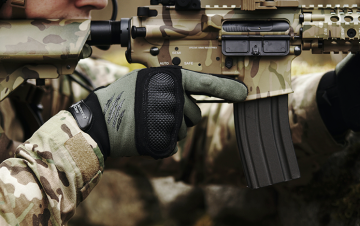I am Mariya Borevich, your personal lawyer. My primary goal is to help clients find optimal solutions to current legal issues, ensuring reliable protection of their interests. I specialize in family, civil, and military law, which allows me to effectively handle a variety of situations and cases. In family law, I provide support in resolving issues related to divorce, property division, establishing and challenging parental rights, alimony, and child custody. I understand that these matters are often emotionally complex, so I always strive to find the most delicate and fair solutions for all parties involved. In civil law, I assist in settling disputes related to contracts, property rights, compensation for damages, inheritance, and other issues concerning the protection of personal and property interests. Special attention is given to military law — supporting servicemen, protecting their rights and interests related to military service, social guarantees, and legal disputes. This area requires deep knowledge and understanding of the specifics of military service and the legislation regulating it.
A subpoena is an official document that obliges a conscripted citizen to appear at a military commissariat to perform certain actions or to provide information. The summons may be served on persons subject to conscription, conscripts or reservists during mobilization. The summons is delivered personally to the citizen for signature. It can be handed over by employees of the TCC, representatives of local authorities, authorized persons (for example, representatives of ZEKs, condominiums). The summons can be served only in a public place or at the place of residence. The use of any other methods is not legal.
What to do after receiving a summons?
- Familiarize yourself with the content: check what day and time you will be summoned, and the purpose of the summons (medical commission, clarification of data, draft).
- Prepare the documents that may be needed when appearing at the TCC (passport, military ID, documents that can confirm the postponement or other special circumstances).
- Attendance at the TCC: Failure to attend without valid reasons may be considered an administrative violation or, in some cases, evasion of military service.
Question
Can they serve a summons if you have an adjournment and what to do in such situations?
Answer
Yes, even if you have a formal adjournment, a summons can still be served.
The main reasons for which a summons to the military commissariat may be issued to the Military Commissariat:
- The need to update data: even if there is a deferment, conscripts may be called to clarify or update their credentials.
- Error or insufficient information in the military office: there are possible cases when the postponement was not taken into account, if the documents were issued recently or the data has not yet been entered into the accounting database.
- Change in Circumstances or Expiry of a Deferral: A deferment may have a limited period after which it must be confirmed or renewed.
What to do if you have been served with a summons to the military commissariat?
- Prepare documents that confirm the deferment: take copies of the documents that confirm your deferment (medical report, decision of the VLK, certificate of care of a family member, document from the educational institution, etc.). These documents may be required if there is a need to confirm the right to deferment.
- Attendance at TCCs and SPs: If you are called to update your credentials, show up at the designated time and provide copies of your deferral documents. If the postponement was not taken into account, show the documents and ask them to mark accordingly.
- Clarify the issue at the Military Committee: ask for clarification regarding your postponement and entering your data into the accounting database. In case of refusal to accept adjournment or find out the reasons for the subpoena, write down the name of the employee with whom you spoke and the date of the conversation for later appeal.
Even if you have an adjournment and you have been served with a summons, it is absolutely necessary to go to the military office and summons to the military commissariat by phone, since the responsibility for failure to appear at the military commissariat without valid reasons is provided for by the legislation of Ukraine, and administrative and criminal liability is provided, fine for failure to appear at the military commissariat, depending on the circumstances and status subpoenas:
Administrative responsibility: if a person does not appear when summoned to clarify credentials or pass a medical commission (without the purpose of mobilization), this is considered an administrative offense.
Criminal responsibility: if a person received a summons for military service during mobilization and did not appear without a good reason, this qualifies as evasion of the draft or hiding from the military commissariat.
Good reasons for non-appearance: good reasons can be confirmed medical circumstances, family circumstances, as well as other objective reasons that make attendance impossible. Documents confirming the validity of the reason should be submitted to the Military Committee as soon as possible.
Legal support may be useful if there is a risk of an undue fine or if there are grounds for challenging a failure to appear order. If you have legal questions related to the subpoena, or there are grounds for a delay, contacting an attorney will help protect your rights. Legal support of the "Consultant" marketplace in such a situation can help to clearly protect your right to postponement and avoid misunderstandings with the military commissions.
Legal Escort at the territorial recruitment and social support center of the legal service "Consultant" can be useful in the following situations:
- Consultations before the visit: a lawyer can provide a preliminary consultation, explaining your rights and obligations, helping to assess the validity of a summons to the TCC, and also preparing you for possible questions.
- Support during the passing of the medical commission (VLC): a lawyer can help ensure that the procedures are followed during the medical examination and the recording of the results, helping you to protect your interests in case there are doubts about the decision of the commission.
- Preparation and submission of documents for postponement or dismissal: if there are grounds for postponement or dismissal (due to health, family circumstances, etc.), the lawyer will help prepare the necessary documents so that they meet the requirements of the law and will accompany you in submitting these documents.
- Appealing the decisions of the TCC and SP, complaint to the military commissariat: in cases where you do not agree with the decision of the TCC, a lawyer can help you file a complaint, present your position and, if necessary, prepare a lawsuit to the administrative court.
- Defense in conflict situations: If you are accused of evading military service, a lawyer can represent your interests, provide legal assistance and defense, helping to avoid administrative or criminal consequences.
- Support during mobilization activities: during the mobilization check, a lawyer will be able to support you, ensure that your rights are respected and provide recommendations for further actions.
If the situation remains uncertain, and the TCC and SP continue to summons to the military commissariat by phone, contact a lawyer who specializes in military law and who will accompany you to the territorial center of recruitment and social support. A lawyer will help in cases of contesting the actions of the TCC and provide your legal protection. Legal support at the Military Commissariat by the "Consultant" service can help avoid misunderstandings, ensure compliance with the law and protect your interests in the TCC, escort to the military commissariat.




































